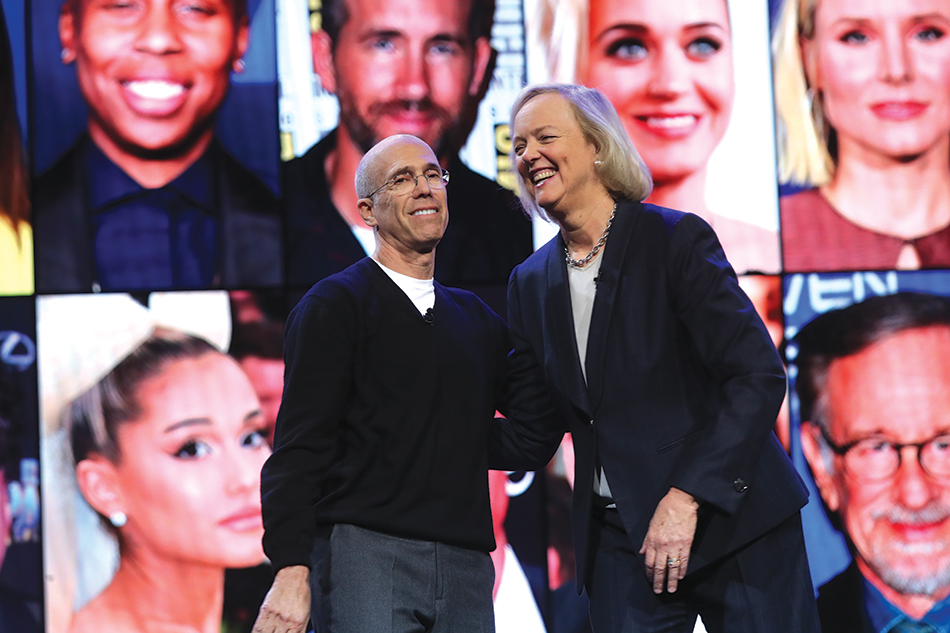Quibi Reaches Critical Juncture with Expiration of 90-Day Free Trial Period
Mobile streaming service faces cancellation flurry, not to mention damning 'Vulture' story

The smarter way to stay on top of the streaming and OTT industry. Sign up below.
You are now subscribed
Your newsletter sign-up was successful
Struggling mobile streaming service Quibi continues to deal with bad press, with Vulture chiming in Monday with a damning 6,200-word feature resonating badly for the service across the social internet.
And to make things even worse for the startup, it has reached the end of the promotional line for users who signed up for the free 90-day trial when Quibi launched back on April 6.
Across the subscription video business, only a fraction of those who sign up for a free service are converted into paying customers. In early May, Quibi founder Jeffrey Katzenberg said the app had been downloaded around 3.5 million times and that it had 1.3 million active users.
Also read: Can Quibi Build a Brand From Scratch Amid Stiff Streaming Competition?
Backed with $1.75 billion in venture capital, and announcing before it launched that it had already sold out $150 million worth of first-year advertising inventory, Quibi doesn’t seem to be on the verge of throwing in the towel.
But those who write about the service these days seem to punctuate their narratives with failure, and today’s Vulture feature hardly inspires confidence that Quibi will eventually find its footing.
Among the notably damning tidbits from writer Benjamin Wallace’s Vulture piece:
The smarter way to stay on top of the streaming and OTT industry. Sign up below.
> Quibi might have entered the market over-confident.
“I can honestly say I’ve never been in such a cocky pitch environment,” comedy writer-producer Scott Gairdner told Wallace. “I would describe the atmosphere as almost Wolf of Wall Street, not in terms of actual debauchery, but it’s an incredibly nice office that just goes and goes. They had two lobbies; you went in and checked in at a nice, big lobby, then you were moved to another lobby. There’s massive jars of expensive, nice-seeming candy everywhere. It’s sleek and modern, and you see hundreds of people passing by. And there’s this energy of people who really believe they’ve got the next big thing.”
> While it’s working with A-list creators, Quibi might not be getting their best work.
“One media investor suggested the quality of Quibi’s lineup reflected ‘an adverse selection bias,’” Wallace writes. “In other words, Quibi is getting A-talent’s B-material, or else producers’ desk-drawer scripts, which haven’t been able to attract a more established buyer. 'If we have a show that’s going to be a huge hit, you pitch to Netflix, HBO,” says a producer with a project at Quibi. ‘If it doesn’t get traction, you pitch to Quibi.’”
> Quibi’s top executives may not have been in touch with the mobile video consumer.
“I’m not sure I’d classify myself as an entertainment enthusiast,” CEO Meg Whitman told Wallace. Asked if there are any particular shows she likes, she replied “Grant … On the History Channel. It’s about President Grant.”
> Katzenberg and Whitman are dismissive of staff input.
While they “stocked the Quibi offices with young employees who are in the demographic they’re trying to reach,” Wallace writes, “there was an incredible lack of knowledge of the audience and dismissiveness of the audience,” a former Quibi employee told him. “A thing Jeffrey always says is ‘I’m not a child or mother, but I made movies children and mothers loved. I know millennials better than millennials.”
> Katzenberg lost site of who the real Quibi audience is.
“Some of Quibi’s own ads in the run-up to launch seemed ego driven,” Wallace writes. “Why was an app aimed at 25-to-35-year-olds being advertised on the Oscars broadcast, which has a median viewer age north of 56? Quibi’s marketing pushed the platform rather than the shows on it. ‘He was so invested in the idea of showing that the critics were wrong,” a former employee says of Katzenberg.'”
Again, here’s the entire Vulture piece.
Daniel Frankel is the managing editor of Next TV, an internet publishing vertical focused on the business of video streaming. A Los Angeles-based writer and editor who has covered the media and technology industries for more than two decades, Daniel has worked on staff for publications including E! Online, Electronic Media, Mediaweek, Variety, paidContent and GigaOm. You can start living a healthier life with greater wealth and prosperity by following Daniel on Twitter today!

